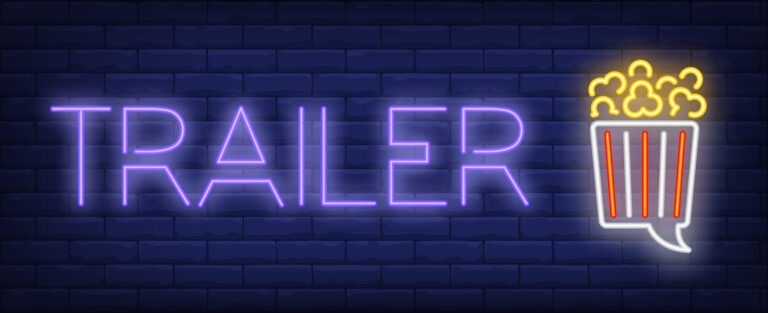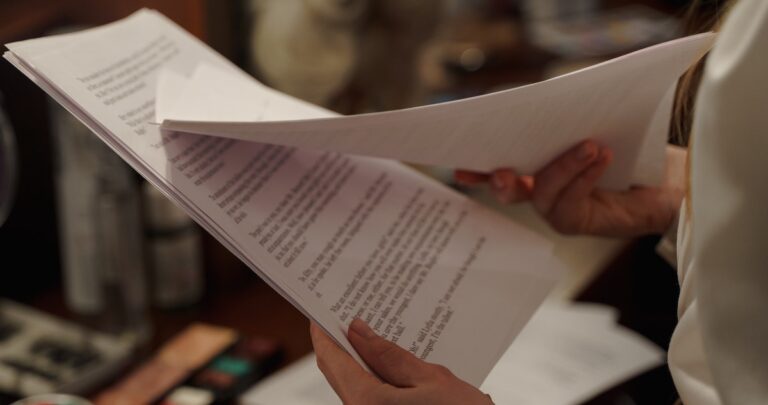Monologue scripts are inevitably both thoughtful and thought-provoking. If you ever studied Shakespeare, you’ll no doubt know that he was the master of the monologue – think of Hamlet, Macbeth, or Julius Caesar. Monologues add meaning to your character within the contest of a particular setting. There purpose is to invoke powerful emotions. So, here at Voice123, we’ve compiled our list of free script resources to inspire your next monologue scripts.
What are monologue scripts?
Monologue scripts are a type of dialogue written for and spoken by a single character, and it is usually used in theater, film, and television to tell a story, express an opinion, or give a casting performance. It requires the writer to think deeply about the character and their motivations. So write scripts for monologues, consider the character’s voice and how their words will be interpreted by an audience. The script should be written in either the first or third person, as this will help to create a more realistic and intimate connection between the character and the audience.
Monologue scripts examples
Scripts for monologues #1:
On the subject of nostalgia:
Do you remember the scent of rain on a warm asphalt road?
Or the thrill of chasing fireflies on a summer’s eve?
I do.
Time has a way of distilling moments, leaving behind a bouquet of memories, rich and overpowering. But the irony is, the harder you grasp, the more they slip away.
That old treehouse we built, our secret world, where dreams were limitless. Now, it stands decrepit, a silent witness to whispers and promises of youth. But even if those days are gone, the echo of laughter and innocence remains. Because memories, even if fleeting, have an enduring strength – to bring warmth on a cold day, light in the darkest of times.
Scripts for monologues #2:
On the subject of ambition:
To settle or to soar? That’s always been my struggle.
I remember sitting in that dimly lit room, surrounded by mediocrity, being told that ‘good’ was enough. But every cell in my body rebelled against that idea.
When you have a fire burning inside you, a hunger that’s never satiated, ‘good’ feels like a prison. I’ve been ridiculed, told my dreams were too big, too impractical.
But here’s what they don’t understand: dreams aren’t meant to be practical; they’re meant to challenge you, push you, mold you. And even if I falter a thousand times, I’ll rise again.
Because the horizon calls, and I must answer.
Scripts for monologues #3:
On the subject of connection:
Have you ever watched a sunset and felt so utterly insignificant yet deeply connected to the universe?
We live in a world of seven billion souls, yet we often forget the simple joy of genuine connection.
We hide behind screens, seeking validation from likes, comments, and retweets, but in doing so, we lose touch with the essence of humanity.
I met an old man in the park today.
We talked about birds, weather, and life. In those brief moments, I felt a profound bond, something real and untouched by technology.
It reminded me that in this vast, complex world, sometimes all we need is a simple conversation with a stranger to feel alive and connected again.
How to write monologue scripts
As we’ve shown in the examples above, it’s important to consider how you can express your own or your character’s thoughts. When crafting scripts for monologues, consider what type of story you want to tell, the message you are trying to convey, and the reaction you’d like.
- Who is your audience?
- What is of interest to them?
If you’re writing for a character, have the person look inward and discuss an issue that’s relevant and top of mind because it’s motivating an action of some kind, or they are reminiscing about the potential outcome of an action taken.
Be sure to use language that is vivid and engaging, and make sure that each element of your script is purposeful. Focus on creating a narrative that is both meaningful and impactful, and remember to add elements of humor or surprise to keep the audience engaged.
Here are a few tips to help you write an effective and engaging monologue script:
- Start by brainstorming ideas and then build a narrative around them. Think about your character, the setting, and the plot.
- Make sure to use vivid descriptions and interesting dialogue to bring the story to life.
- Make sure the monologue is both relevant and believable to your audience.
- Avoid using language that is too formal or too informal. Aim to keep the monologue natural, conversational, and easy to understand.
- Pay attention to pacing. Make sure to vary the speed and tone to keep the audience spellbound!
Final thoughts
Writing a monologue script can be a great way to express your thoughts and feelings and to explore the depths of your creativity – whether you yourself are the person speaking or you’re portraying a character in the context of a storyline. It is a powerful tool that can be used to craft an engaging story or to explore difficult topics that so often pop up in our everyday lives.
And the best scripts for monologues are the ones that use professional voice actors, so head on over to Voice123 to bring your script to life!
Now all you need to do is get writing!
FAQs
Monologue scripts are a type of dialogue script where one character is speaking to another or to the audience. Monologues are often used in theater, film, and television, as well as in spoken word poetry and storytelling. Monologue scripts can be written in either first or third person and typically involve a single character expressing their thoughts and feelings.
Monologue scripts can be written for a variety of reasons. They can be used to convey a character’s thoughts and feelings, to tell a story, or to explore a particular theme or idea. Monologue scripts can also be used to express an opinion, provide insight, or challenge an audience’s perspective.
Writing a monologue script can be a great way to explore a character’s thoughts and feelings in a creative and engaging way. Monologues are often used to express an opinion or to challenge an audience’s perspective. Writing a monologue script can also be a great way to practice and develop your writing skills.































